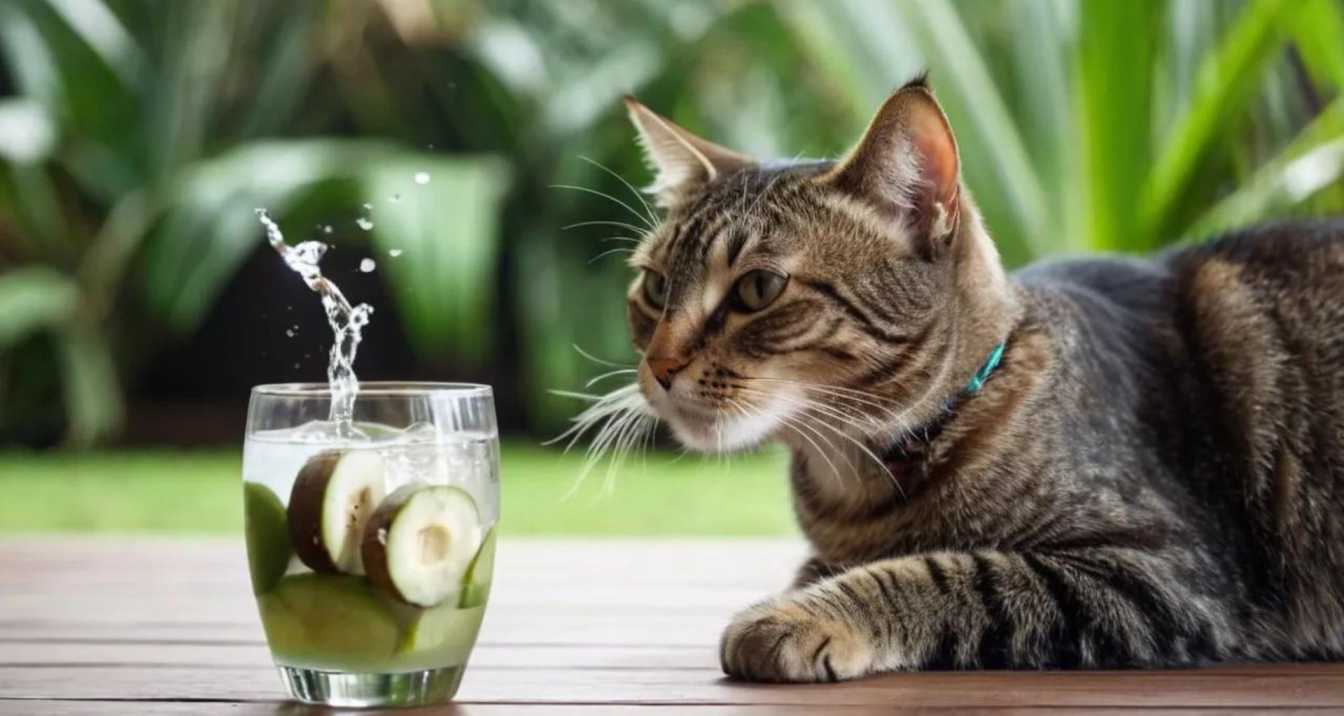Coconut water is known for its hydrating, nutrient-dense bi-hydration benefits, and increased health. However since pet owners are so concerned about the health of their pets, the question arises as to whether it is safe for humans. Useful drink is also safe for our pets? Question “Can cats drink coconut water?” This is something that many cat owners want to know.
So the answer is that cats can drink coconut water but in very small quantities. Although this is not toxic to cats, it cannot be used in place of water. Coconut nectar is rich in electrolytes and nutrients, but cats have different nutritional needs than humans.
Understanding Coconut Water
What is Coconut Water?
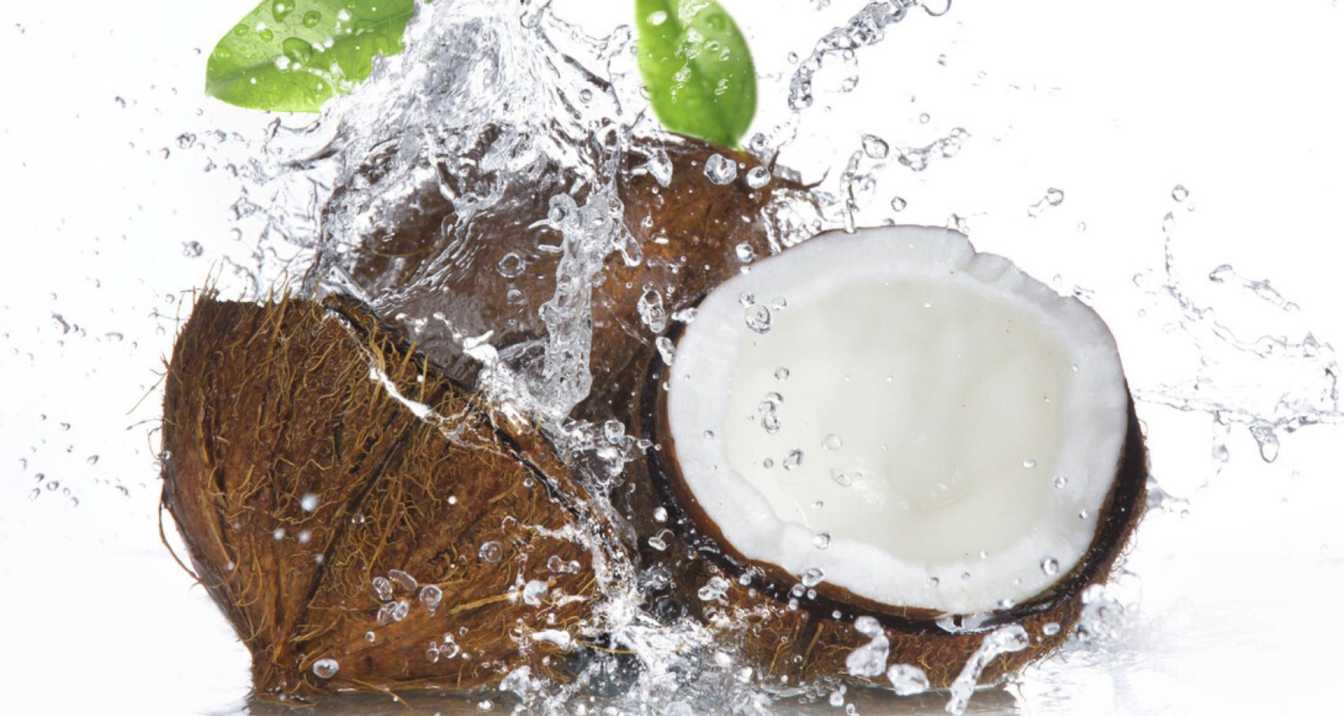
The clear liquid inside unripe coconuts is known as coconut water. It is a calorie-conscious option. It’s distinct from the richer coconut milk derived from mature coconuts.
Nutritional Composition of Coconut Water
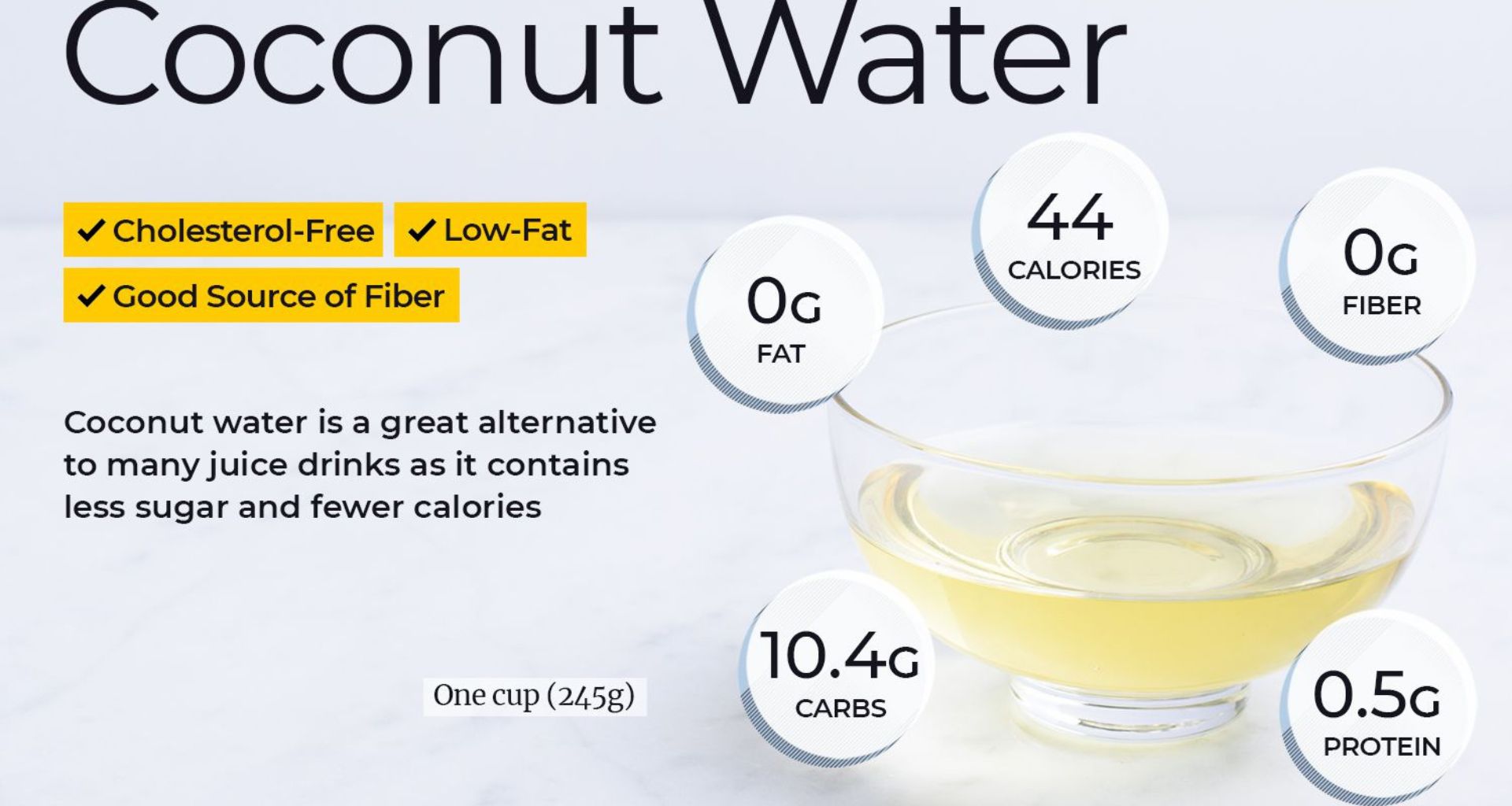
Fresh coconut drink Known for its hydrating properties and slightly sweet taste is rich in electrolytes like potassium, sodium, and magnesium. This facilitates hydration. It contains vitamins C and B-complex for general health. Minerals in it such as calcium and phosphorus increase Bone density. Antioxidants in coconut water decrease oxidative stress by fighting free radicals.
Health Benefits of Coconut Water for Humans
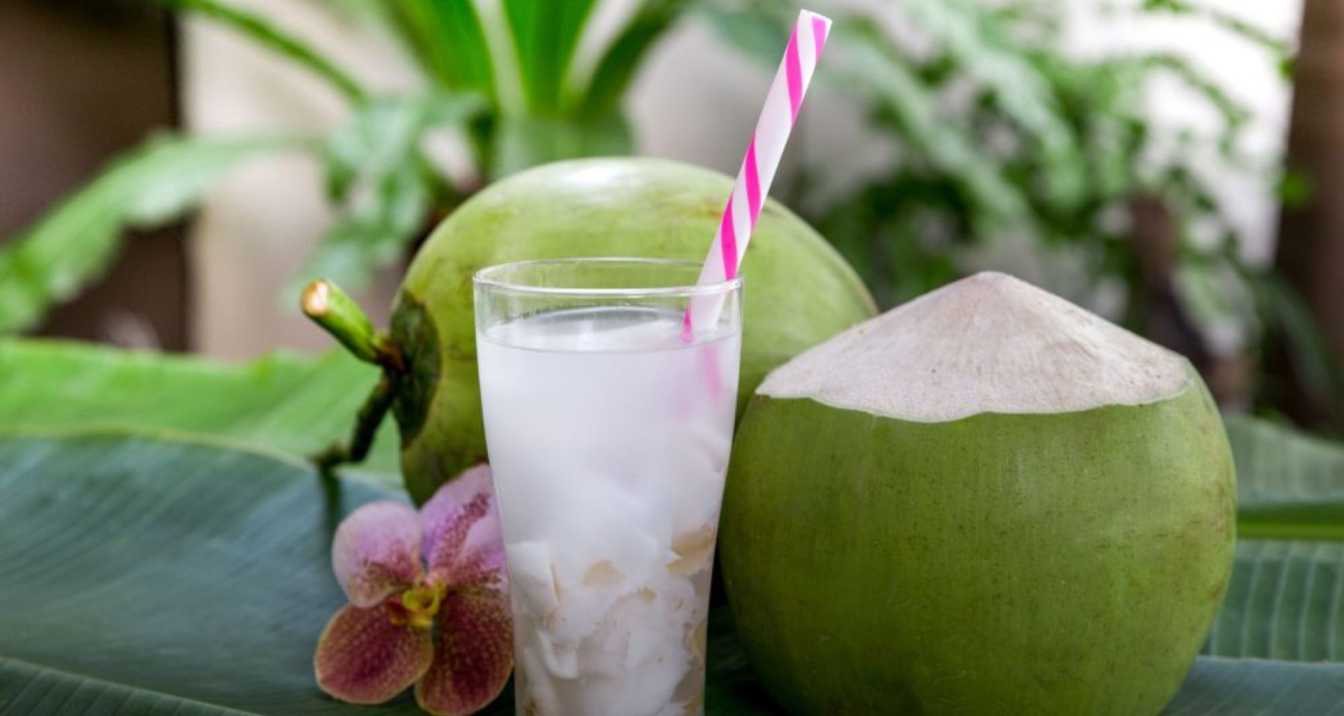
Coconut juice is a Nature’s wellness enhancement. It is perfect for rehydration with its rich electrolytes. Antioxidants in it help reduce the risk of persistent illnesses. Its low-calorie content supports weight management. Have potassium which helps lower blood pressure. It also prevents kidney stones by diluting urine and flushing out minerals. Exploring if these advantages apply to our furry companions.
Is Coconut Water Safe for Cats?
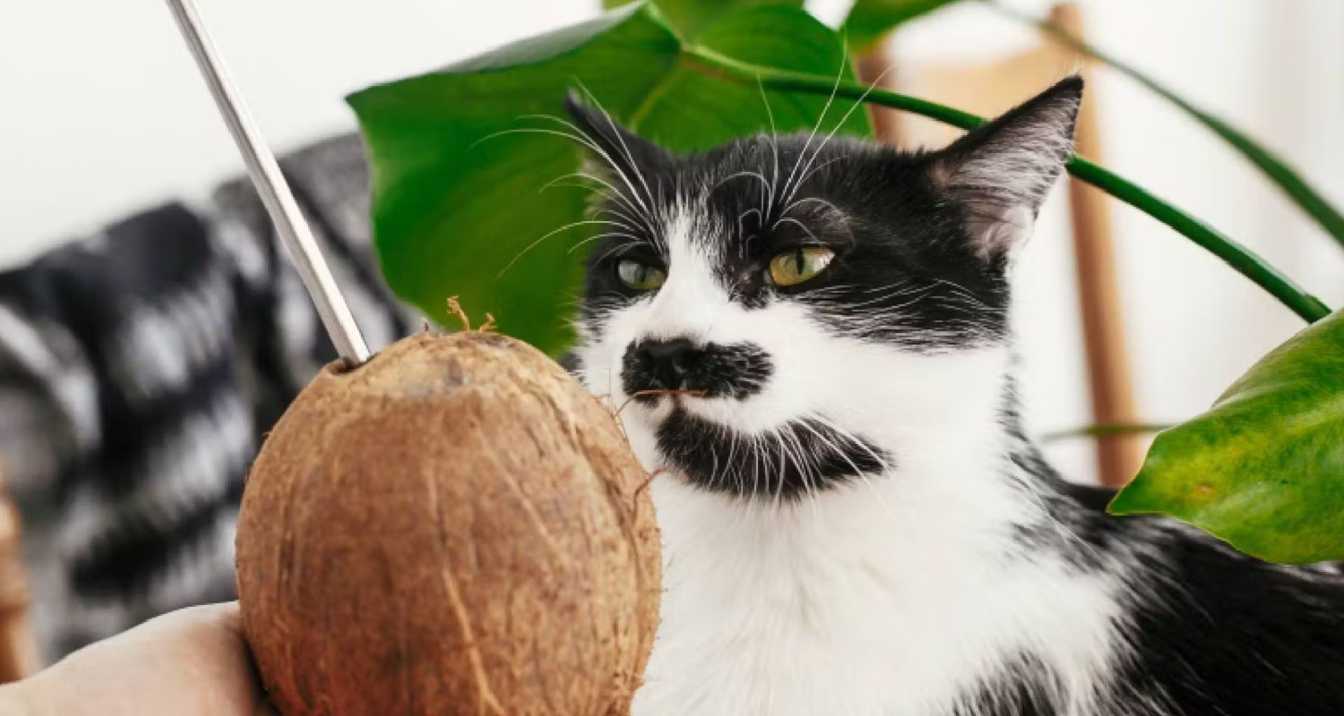
Yes, Coconut liquid is generally safe for cats in small amounts. While it’s not toxic, it doesn’t mean it should replace their regular water intake. Cats have particular dietary needs, and while coconut essence can be a refreshing treat, it shouldn’t be essential in their diet.
Health Perks for Cats
Coconut water, known for its hydrating properties and rich nutrients, can benefit cats when given in moderation. It provides essential electrolytes, aiding in hydration, digestion, and overall health. Rich in antioxidants, it supports the immune system and promotes healthy skin and coat. However, always consult a veterinarian before introducing coconut water to your cat’s diet to avoid potential digestive issues.
Read more: Can cats have almond milk
Ideal Portions for Cats
When giving coconut juice to cats, it’s crucial to offer it in small quantities. A few teaspoons at a time is sufficient, and it should be limited to occasional treats rather than daily consumption. It’s important to monitor your cat for any adverse reactions. If your cat shows signs of discomfort or digestive upset, discontinue giving coconut juice immediately.
Feline Nutritional Requirements
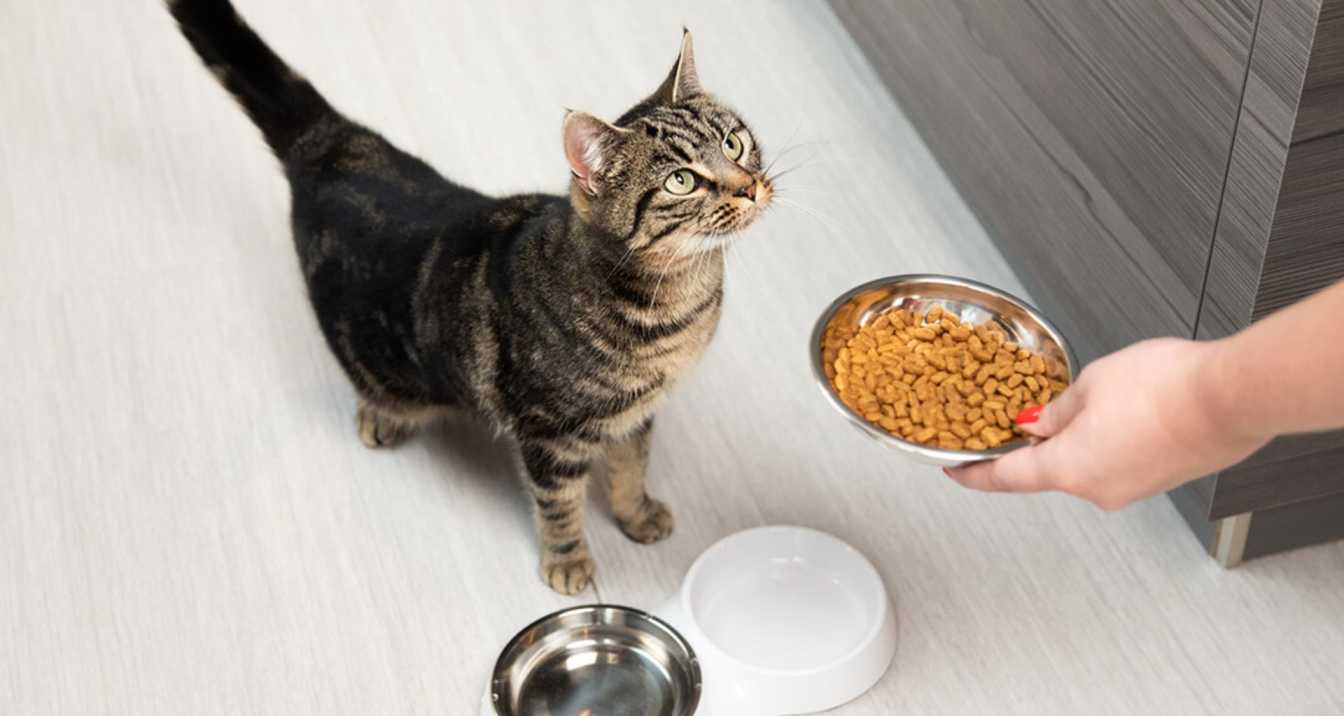
Understanding the nutritional needs of cats is crucial to their health and well-being. Cats have specific dietary requirements that differ significantly from humans.
Key Nutrients Cats Need
- Protein: Necessary for muscle growth and maintenance.
- Taurine: Essential for heart and eye health.
- Vitamins and Minerals: Crucial for immune function and overall well-being.
- Fatty Acids: Important for skin, coat health, and energy.
Contrasting Human and Cat Diets
- Dietary Requirements: Cats need more protein and fewer carbohydrates than humans.
- Essential Nutrients: Unlike humans, cats require taurine and arachidonic acid, which are found only in animal tissues.
- Hydration: Regular water is essential for hydration; coconut water can be an occasional treat.
Possible Downsides and Considerations
Hazards of Excessive Intake
Overconsumption of coconut water can cause digestive issues such as diarrhea and stomach upset in cats. It may also lead to an electrolyte imbalance, affecting heart and muscle function. Additionally, the calories in coconut water can contribute to weight gain if consumed in large quantities.
Understanding Allergies in Cats
Cats can have allergic reactions to coconut water, with symptoms like itching, swelling, or difficulty breathing. If these occur, stop giving coconut water immediately and consult a veterinarian. Introduce coconut water slowly, in small amounts, to monitor for any adverse reactions.
| Veterinarian Opinions on Cats Drinking Coconut Water | Case Studies and Real-Life Examples |
| Moderation: Safe in small amounts. | Positive Reactions: Some cats enjoy small amounts occasionally. |
| Not a Replacement: Should not replace regular water. | Negative Reactions: Some cats experience digestive issues. |
| Balanced Diet: Important for overall health. | No Interest: Some cats are indifferent to coconut water. |
| Caution: Avoid over-reliance on non-traditional fluids. | Moderation and Monitoring: Essential when offering coconut water. |
Introducing Your Feline to Coconut Water
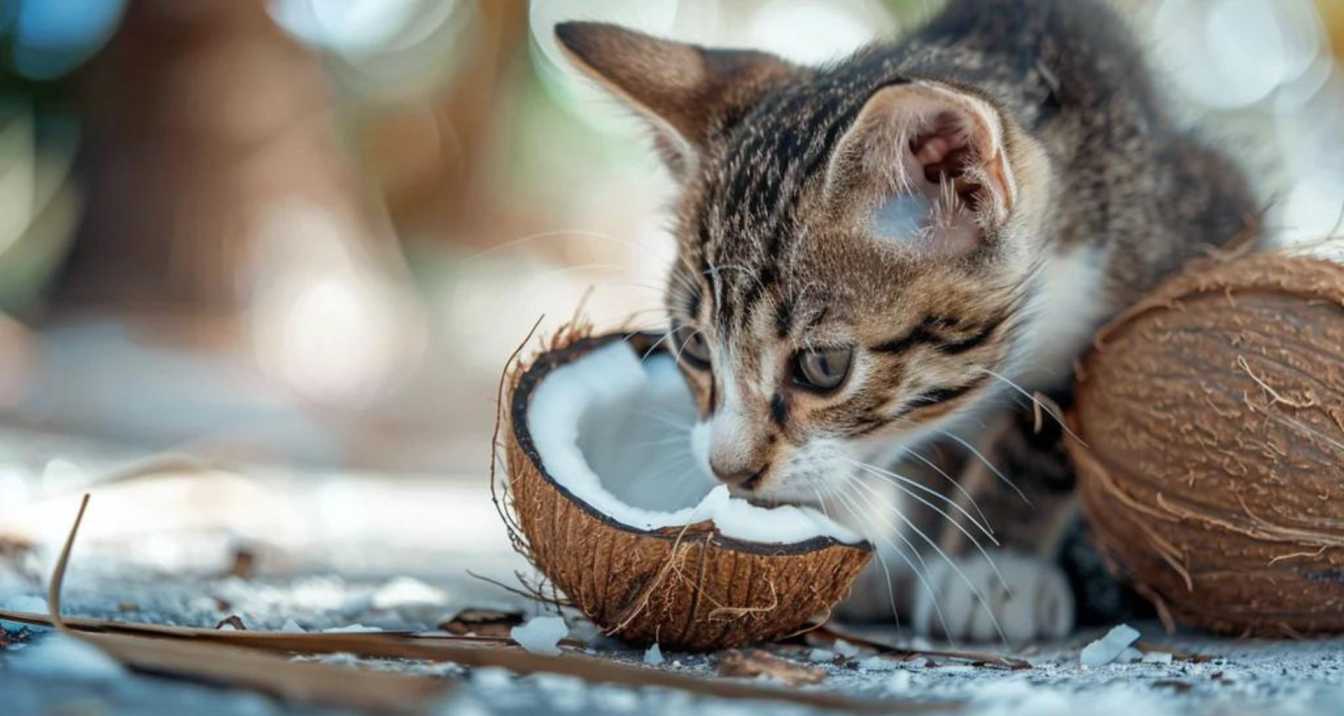
Guidelines for Introducing
Introducing this drink to your cat which is completely new for them. It should be done gradually and with caution. Follow these steps to ensure a smooth introduction:
Start Small: Begin with a teaspoon.
Mix with Water: Dilute to reduce concentration.
Observe Closely: Watch for any adverse reactions.
Observing Your Cat’s Reaction
Monitoring your cat’s response is crucial. Pay attention to:
Behavior Changes: Look for lethargy or hyperactivity.
Appetite: Ensure there are no signs of food aversion.
Physical Symptoms: Check for vomiting or diarrhea. Stop immediately if these occur.
Adjusting Serving Sizes Based on Observations
Adjust the amount based on your cat’s reaction:
Increase Gradually: Slowly increase the quantity if tolerated.
Limit Frequency: Keep it as an occasional treat.
Monitor Regularly: Watch for long-term effects and adjust as necessary.
Conclusion
In conclusion, can cats drink coconut water? When given in moderation, coconut water can offer various health benefits for cats, including hydration, improved digestion, immune system support, and better skin and coat health. Its low-calorie and low-fat content make it a suitable occasional weight management treatment, and its antimicrobial properties can help combat infections. However, it is essential to ensure that coconut water is introduced carefully into a cat’s diet and does not replace a balanced cat diet.
FAQ
| Can Kittens Drink Coconut Water?
Kittens should generally stick to their mother’s milk or a kitten milk replacer for proper nutrition. Once they are older and eating solid food, a small amount of coconut water can be given as an occasional treat, but it should not replace regular water. |
| Is Flavored Coconut Water Safe for Cats?
No, flavored coconut water often contains added sugars and artificial ingredients that can be harmful to cats. Stick to plain, natural coconut water if you choose to give it to your cat. |
| How Often Can I Give My Cat Coconut Water?
Coconut water should be given sparingly. A few teaspoons once a week is sufficient. It’s important not to make it a regular part of their diet but rather an occasional treat. |
| What Should I Do If My Cat Shows Signs of Discomfort?
If your cat shows signs of discomfort, such as vomiting, diarrhea, or lethargy, after drinking coconut water, discontinue its use immediately and consult your veterinarian. |
| Can Coconut Water Replace Regular Water for Cats?
No, coconut water should not replace regular water. Cats need plain, fresh water daily to stay hydrated. Coconut water can be an occasional treat but not a substitute for their primary water source. |
